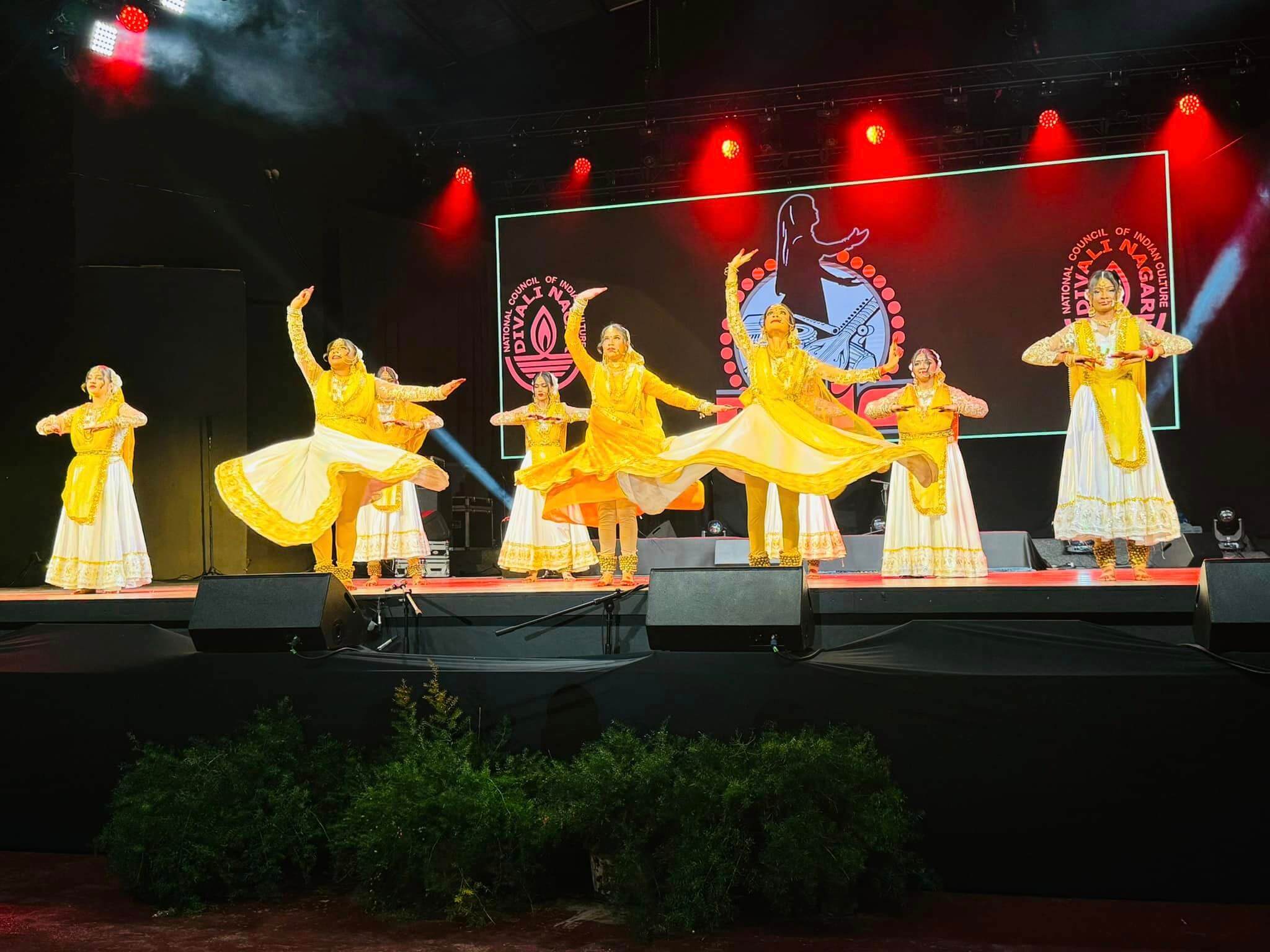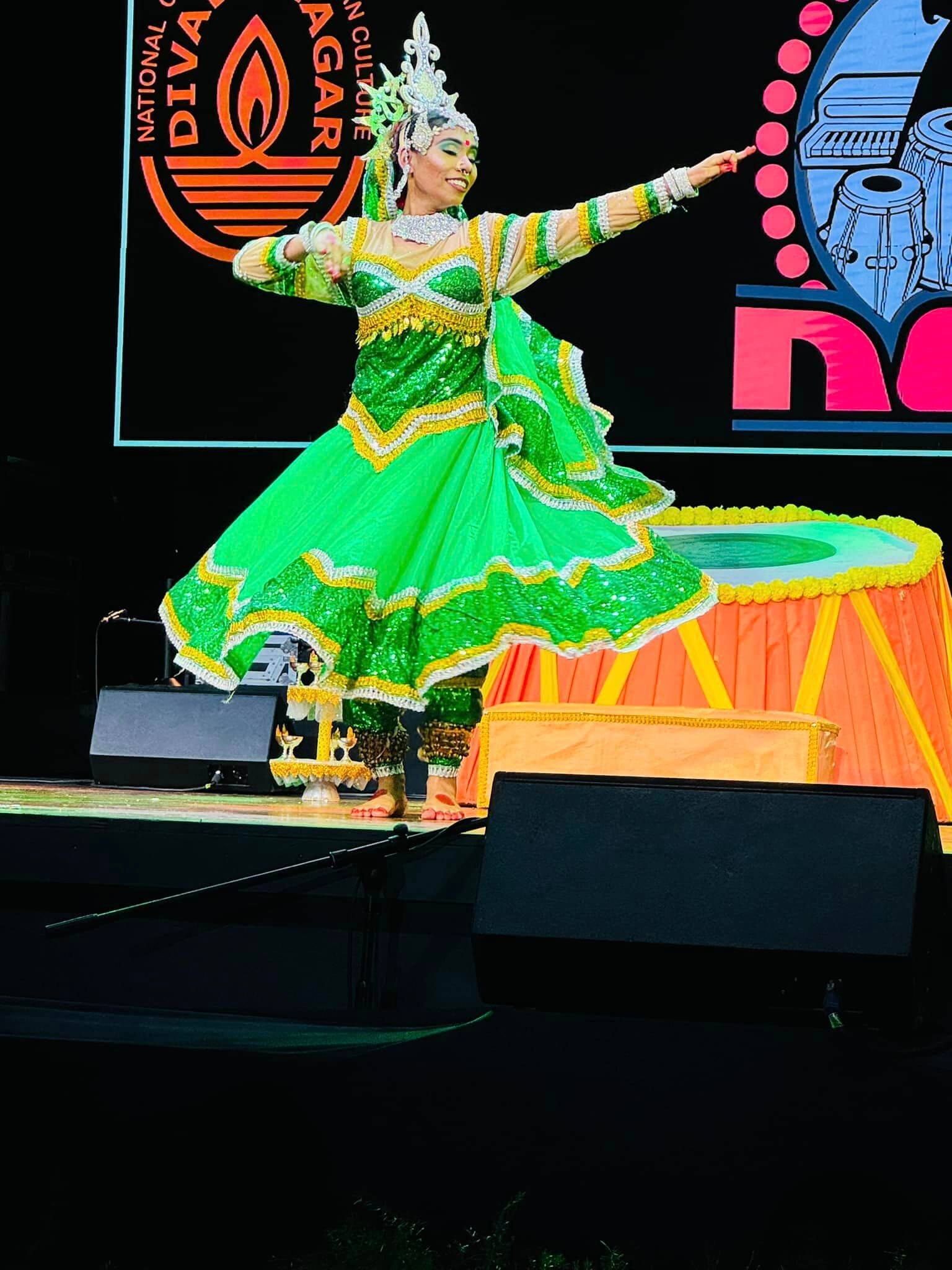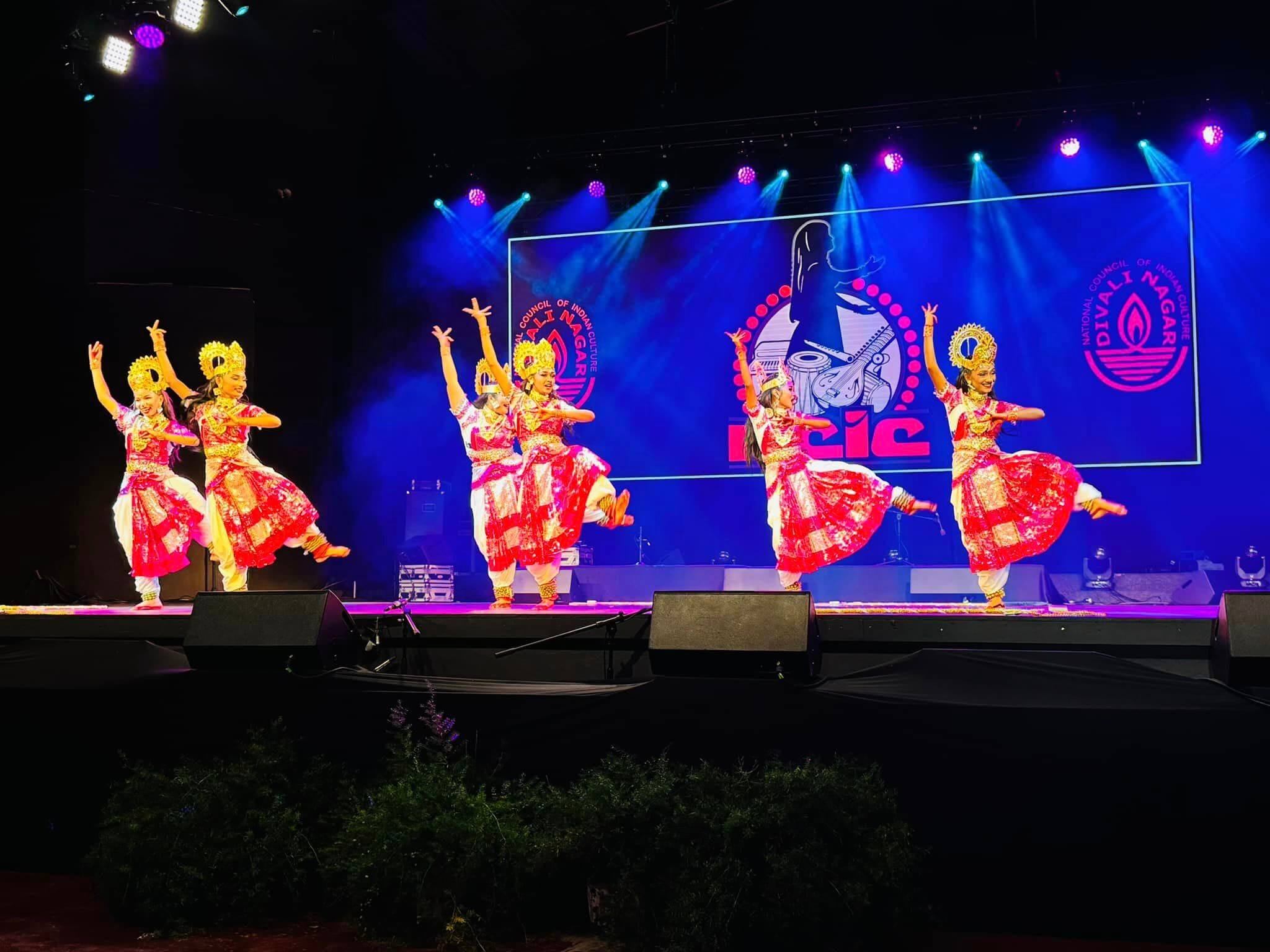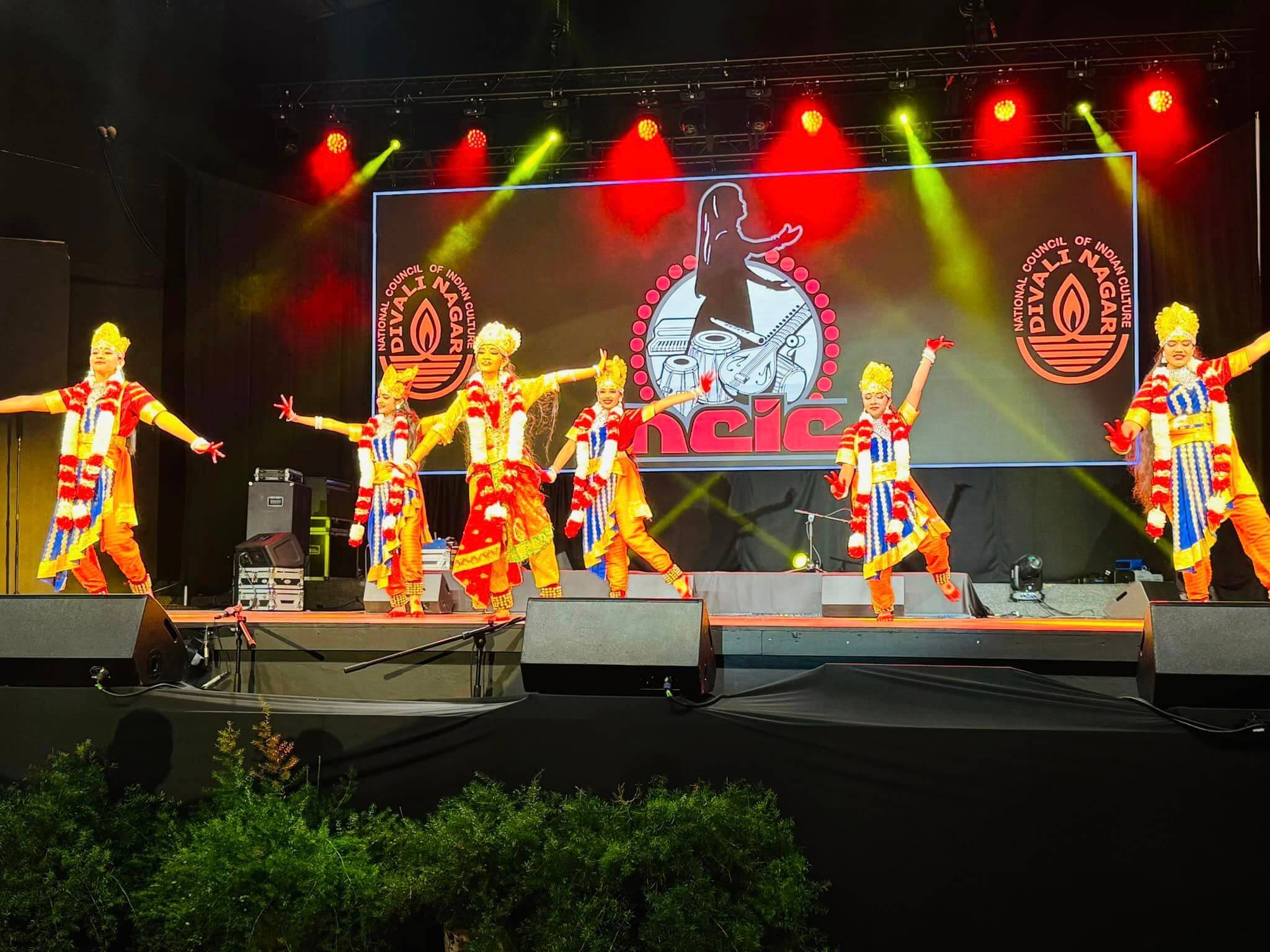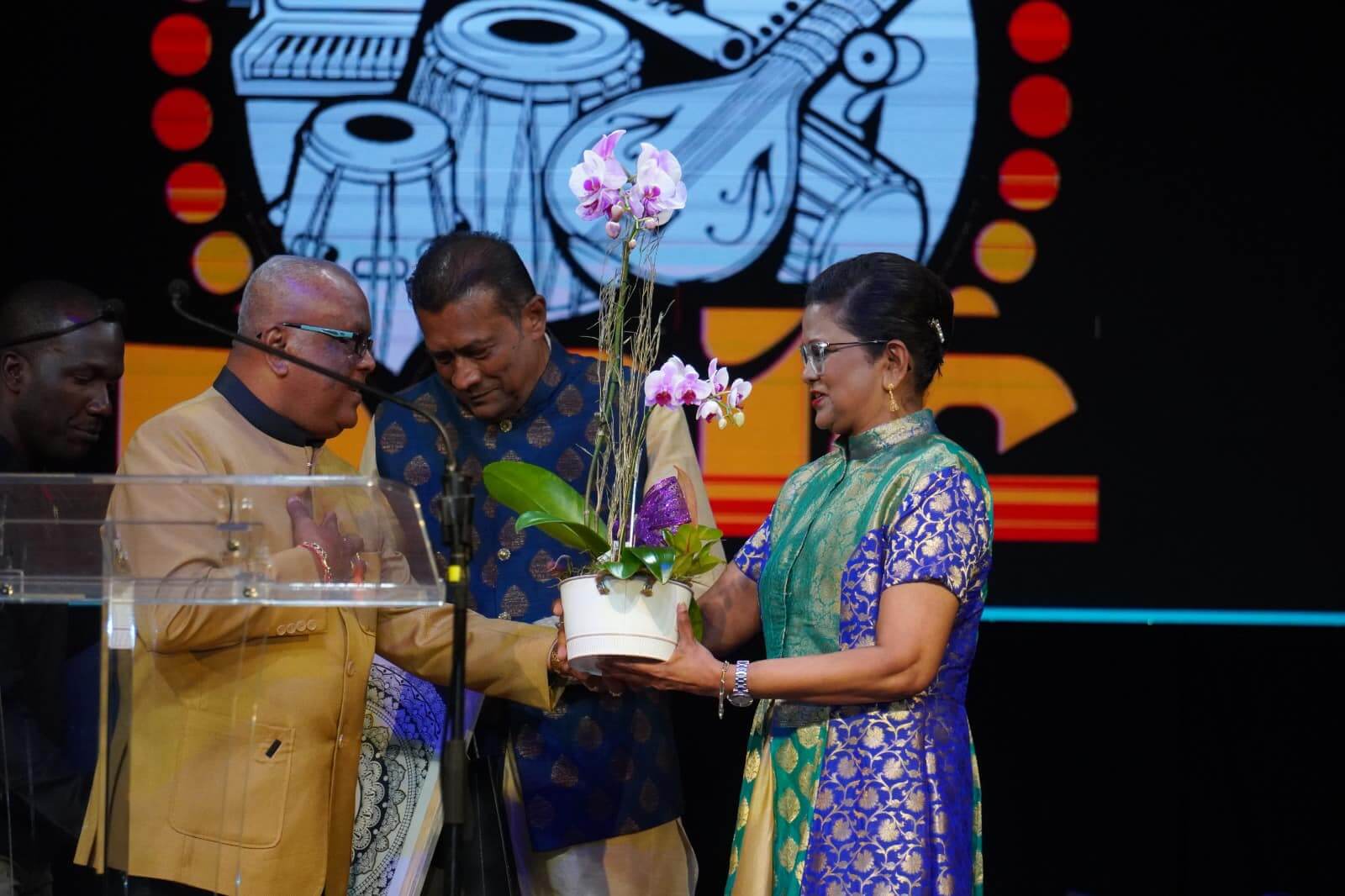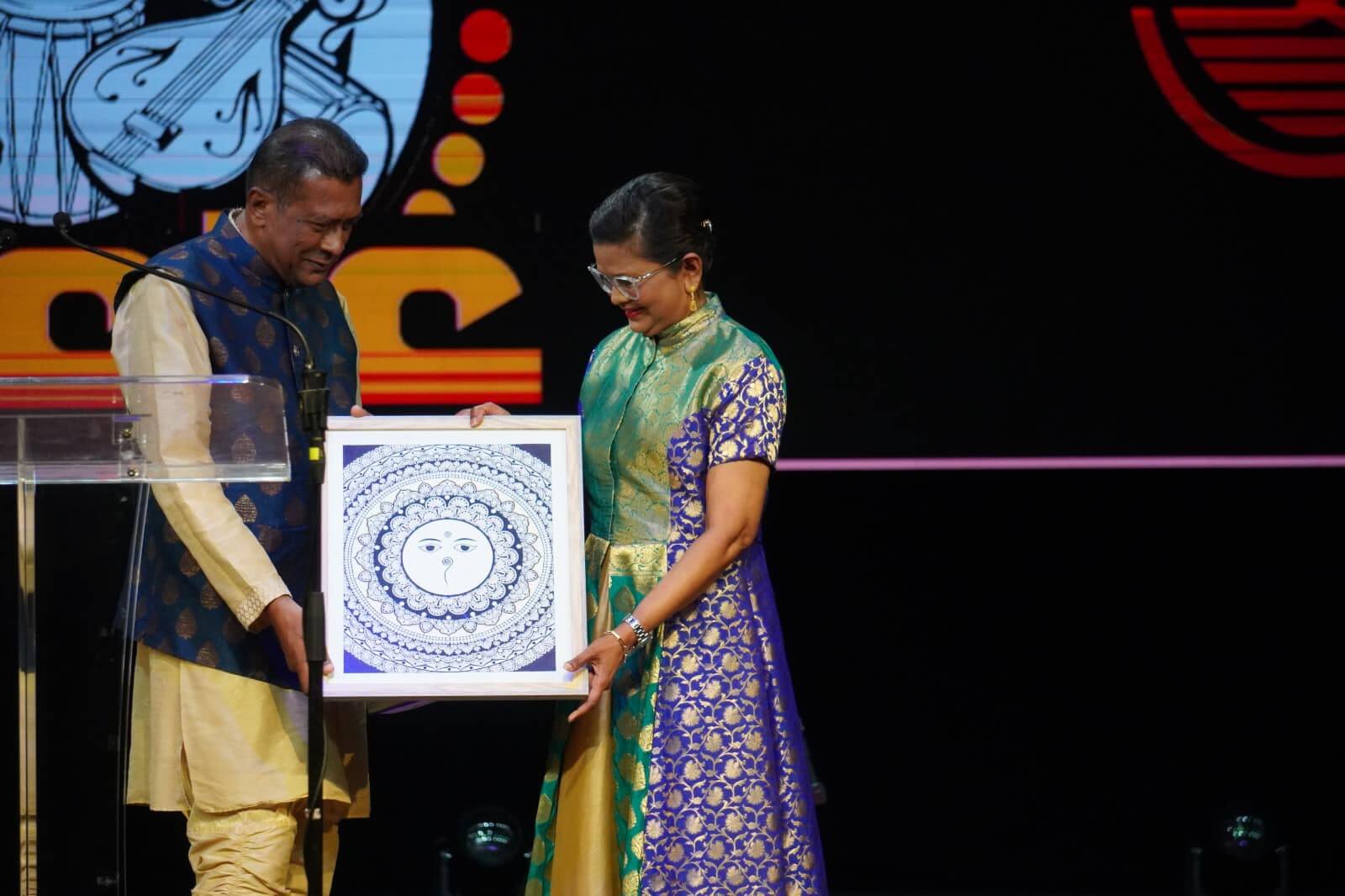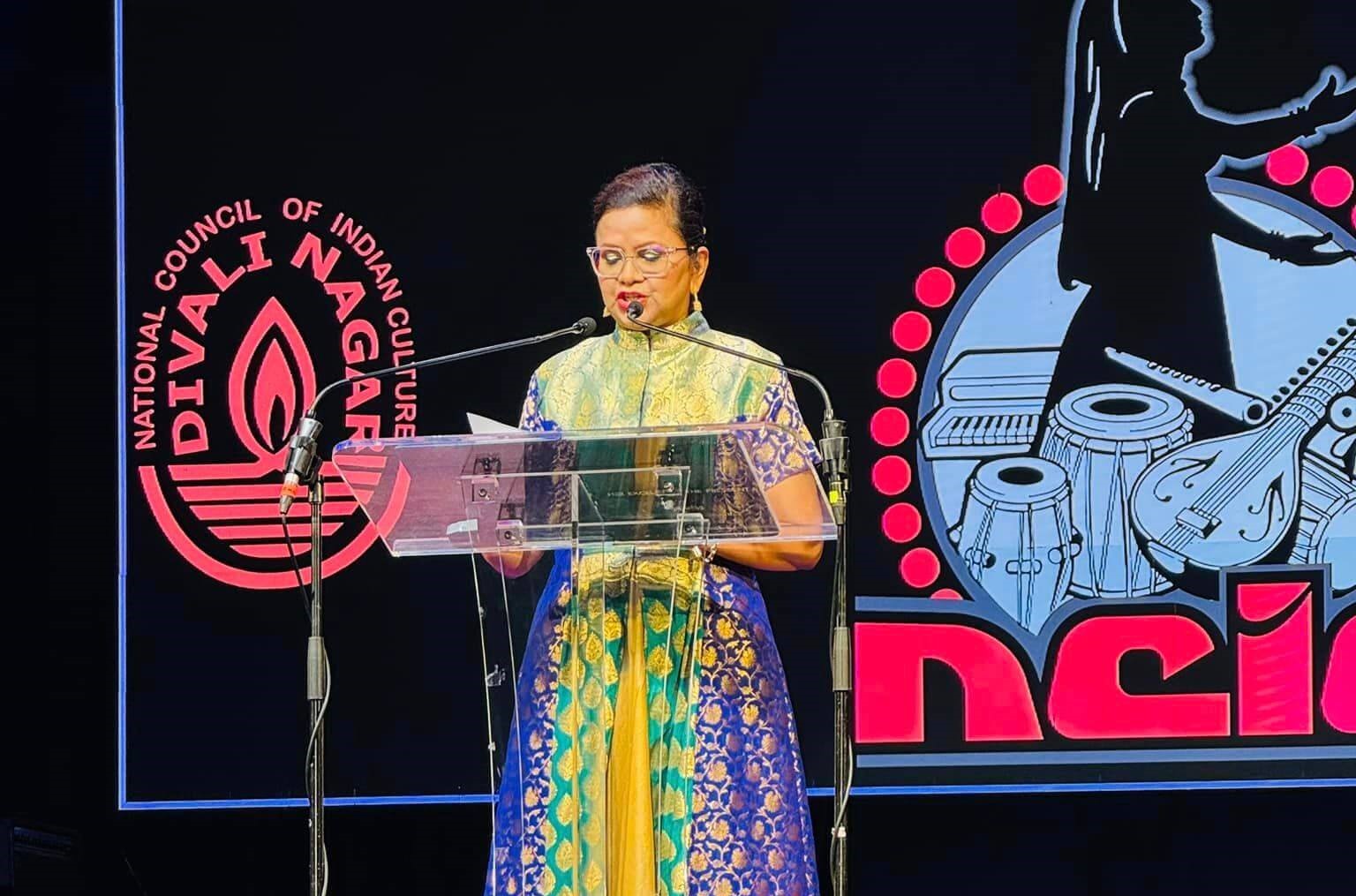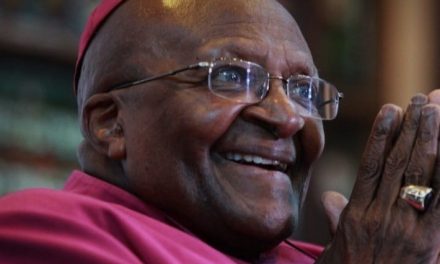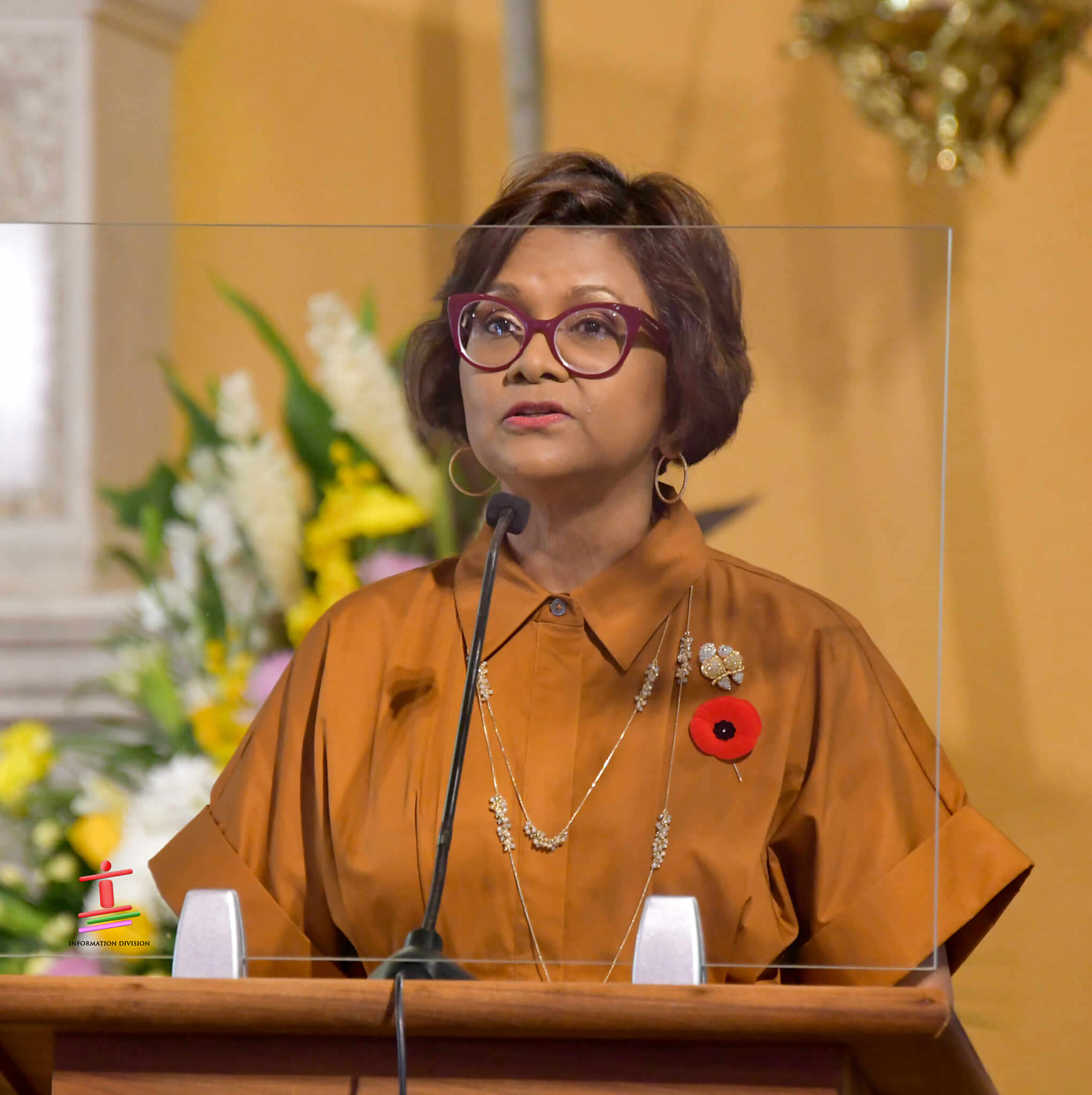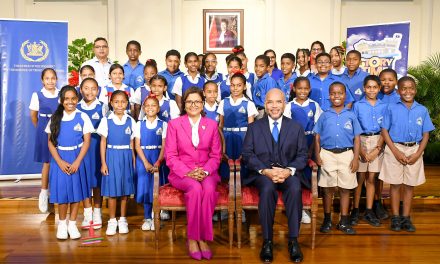Their Excellencies Christine Carla Kangaloo O.R.T.T., President of the Republic of Trinidad and Tobago and Kerwyn Garcia SC, First Gentleman , attended the NCIC Divali Nagar on Tuesday October 29, 2024. Her Excellency delivered the feature address at the event, the theme of which was “Grihastha Ashram—Building Homes and Families.”
Sita Ram and Good Evening.
It is always such a pleasure to visit the Divali Nagar. Each time I visit, I find myself utterly enthralled by its magnificent displays of culture, religion and history. I thank the National Council of Indian Culture most sincerely for its gracious invitation to my husband and me to attend this year’s celebration. Your annual invitation has become, for us, something to which we both look forward with tremendous excitement and great anticipation.
It would be remiss of me if I did not take this opportunity, at the very onset, to pay tribute to the visionary behind the Divali Nagar—the late Dr Deokinanan Sharma. Dr Sharma’s invaluable work in preserving Indian culture in our country has deservedly made him a cultural icon. Through his work, he has left an indelible mark on our cultural landscape. He has created a platform for all of Trinidad and Tobago to come together and experience this beloved festival. He has made a space for all of us to learn more about and to immerse ourselves in a critical part of our historical and cultural heritage. On behalf of a grateful nation, I say thank you to Dr. Sharma and to his family.
Dr Sharma’s legacy will forever live on. It lives on in the spirit of the Divali Nagar. I find it extremely fitting that the theme for this year’s festivities, “Grihastha Ashram—Building Homes and Families,” so closely aligns with and reflects the values that were central to his life and calling.
“Grihastha Ashram” refers to the second of four stages of the individual’s life, and means “being in and occupied with home, family” or simply, “householder”. This stage of an individual’s life encompasses marriage, the raising of children, the maintenance of a household, and the contribution of the individual to society through productive work.
I congratulate the NCIC in its selection of this year’s theme, for two (2) reasons. The first is that it so aptly reflects Dr. Sharma’s life and his contributions. The second in that it is a most timely theme at this stage in our nation’s history. I believe that if we are to rise above the challenges that currently face us, and if we are to achieve our fullest potential as a people, each of us, as individuals, needs to embrace the principles of Grihastha Ashram”. Each of us needs to devote ourselves to the duty of building homes and families.
Building a home is about much more than putting together a structure in which to physically live. It is about putting together a psychological environment in which we feel safe, secure and supported. It is about creating a physical space in which we can truly be ourselves. The home provides a sense of stability and helps people build trust and feel comfortable. As it turns out, all of the elements that go into building a home, are also the elements that go into building a nation. A successful nation is made up of individuals who trust and feel comfortable around one another. When people are living in loving homes, it becomes easier for them to inter-relate lovingly in their wider communities. It becomes easier for them to inter-relate lovingly at schools, at their workplaces, and in public spaces. People who live in loving homes – whose daily experience is that of feeling safe, secure and supported – are far less likely to engage in acts of violence or of abuse towards persons outside of their homes. They are far less likely to gravitate towards violence and crime as a means of feeling valued and respected; they are far less likely to be in need of the false feeling of power or of security that comes from wielding a weapon. They are more likely to be self-confident and creative, and are more likely to be open and giving. That is the kind of person that building a true home produces. What Trinidad and Tobago desperately needs today, is for us to build better homes and, in the process, produce citizens of this mould.
Building homes, goes hand in hand with building families. The safety, security and support that are essential elements of the home, are also critical elements in building happy and successful families. And, just as a home is about much more than putting together a structure in which to physically live – so, too, building a family is about much more than simply having children. The term “family” is often used to refer to a collection of people who are related to each other. It is true that, as our societies evolve, so, too, does our concept of the family. But, for me, the key characteristics of “family” will never change: and, to me, a family will always be a group of people who provide emotional warmth, security, and a sense of belonging to and for one another. Viewed in this way, one understands that the family is crucial for an individual’s personal development and well-being. The family unit is, unarguably, instrumental in shaping our values, beliefs, and behaviours, and in offering guidance and encouragement as we navigate life’s challenges. And it seems to me, as I’ve said before, that if we are to rise above the challenges that currently face us as a country, and if we are to achieve our fullest potential as a people, each of us, as individuals, has to commit to being a part of, and being accountable to, a family unit.
That commitment requires us to be present to, and to be present for, others – it requires us to be available to lend support and assistance to one another when needed. It requires us to be present – and not absentee – fathers; it requires us to be devoted mothers; and it requires us to be respectful children and caring siblings. In Trinidad and Tobago, we tend at times to pay lip-service to what it means to be a family. We expect others, including the State, to be there for us, without ourselves making time to be there for others. We expect others to provide for us, without our making any contribution to our own well-being and to the well-being of others. One area in which, as President, I have found a sense of family to be sorely lacking in our society, is in our reluctance to step forward in service of others by way accepting appointments to Boards and to bodies which are established to serve the national community. We have to be careful not to become a selfish people. We have to understand that no-one is an island, and that we each have a responsibility to play a role in the affairs of the larger national family that we call our country. A good example of this is your own Senator Teemal, who has answered the call to serve the wider community through his service in the Parliament.
From all that I have said so far, I hope that you will understand why, for me, building homes and families is essential, not just for individual happiness, but for national progress. When a family shares and reinforces agreed principles and values, they help one another grow and they hold one another accountable. When personal growth and accountability are practised outside of family, and are spread throughout the wider community, the entire country benefits. The home is the first and the natural place for families to practise a shared sense of purpose. Children who live in such homes will not fall prey to the lure of the easy dollar or the false promise of quick money; they are imbued with the emotional and the spiritual warmth that pervade their homes. That emotional warmth and that spiritual strength guide them in their daily decision-making: they avoid places and occasions that are inconsistent with the core values they practise with their families, in the sacred spaces of their homes.
I believe that a healthy home and a healthy family are, together, a microcosm of a healthy society. This is why I have said that the theme of “Grihastha Ashram” for this year’s Divali Nagar, is most timely. As we strive toward a healthier society and toward a better country for all of us, it is our homes and our families that will make the difference between success and failure. Harmony in our homes, and within our families, translates into harmony among families and communities and nations. This, for me, is what Divali Nagar embodies and epitomizes this year – this year, Divali Nagar calls us to come home – to ourselves, to our families, and to God.
I believe that Divali Nagar is the perfect platform from which to make such a call. “Divali Nagar” and “family” go hand in hand. Attending the Divali Nagar is a family affair. It is a time for bonding, creating new traditions and experiencing history, culture and spiritual customs as a family unit.
My wish and my prayer for all of us are that we will use the theme of this year’s Divali Nagar to come home – to ourselves, to our families, and to God. My wish and my prayer are that we will understand that we are all part of a national family which requires our contributions in order for it to grow and develop. And my wish and my prayer are that, for this Divali and after, we will rise to the challenge of our collective responsibility to sacrifice for one another, to take accountability for our actions, and to extend compassion, support, and consideration to all of our brothers and sisters, regardless of colour, class, race or creed.
Let us, therefore, commit ourselves to this journey of growth and responsibility. Let us actively participate in the nurturing of our families and communities, understanding that our actions have the power to enhance the lives of other people. Regardless of family structure, whether we were born into a stable family unit, or not, we can all embody the values of “Grihastha Ashram,” and ultimately become a more compassionate and supportive society. Let this prayer from the Rig Veda be ours: “May we belong to one brotherhood. May our hearts and minds move toward one supreme goal. May we be inspired by common ideals. May our aspirations be harmonious. May our minds be in unison. May we strive to reduce disparity. May we be bound in strong fellowship and unity.”
I thank you all for listening. And I wish you and the entire nation a Happy and a Holy Divali 2024.
